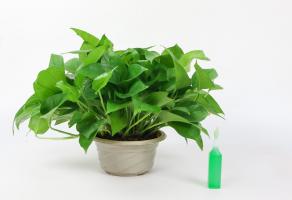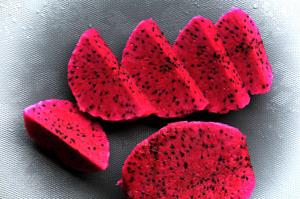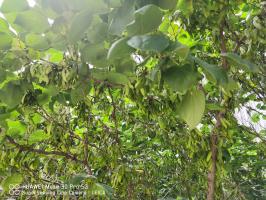Introduction
Tree frogs are a type of amphibian that are known for their unique ability to climb trees and jump from leaf to leaf. These fascinating creatures are found in tropical and subtropical regions throughout the world, and are loved by many for their bright colors and beautiful patterns. However, one of the most interesting facts about tree frogs is what they eat. In this article, we will look at what tree frogs eat, and how their diet affects their behavior, health, and survival in the wild.
What Do Tree Frogs Eat?
Tree frogs are carnivorous and primarily eat insects, spiders, and other small invertebrates. These can include crickets, grasshoppers, beetles, and moths, as well as flies, mosquitoes, and ants. Some tree frogs will also eat smaller frogs, tadpoles, and even small lizards or snakes. In general, tree frogs are opportunistic feeders and will eat whatever prey is available to them in their environment.
How Do Tree Frogs Catch Their Prey?
Tree frogs are well adapted to catching their prey in the wild. They have long, sticky tongues that they use to quickly capture insects and other small animals. They also have large, bulging eyes that allow them to see their prey in low light conditions, which is important since tree frogs are typically nocturnal animals. In addition, tree frogs have strong legs and feet that are designed for gripping onto trees and other surfaces, which allows them to move quickly and easily through their environment in search of food.
What Are the Benefits of Eating Insects?
Tree frogs have a very specific diet that consists of mostly insects, spiders, and other small invertebrates. While this may seem like an odd diet for an animal, there are actually several benefits to eating insects. First, insects are a rich source of protein, which is important for building and repairing tissues in the body. Insects are also low in fat and cholesterol, which makes them a healthy option for animals that need to maintain a lean physique. Finally, because insects reproduce quickly and in large numbers, they are a plentiful and sustainable food source for many animals in the wild.
How Does Diet Affect Tree Frog Behavior?
What tree frogs eat can have a significant impact on their behavior. For example, if tree frogs are unable to find enough food in their environment, they may become lethargic and less active. On the other hand, if tree frogs are able to find an abundance of food, they may become more active and spend more time moving around and exploring their environment. In addition, the type of food that tree frogs eat can affect their growth and development, as well as their overall health and longevity.
In Conclusion
In conclusion, tree frogs are fascinating creatures that have a unique diet consisting of insects, spiders, and other small invertebrates. Their ability to catch prey with their long, sticky tongues and strong legs and feet is truly impressive. By understanding what tree frogs eat and how their diet affects their behavior, we can gain a deeper appreciation for these incredible animals and the important role they play in our ecosystem.

 how many times do yo...
how many times do yo... how many planted tre...
how many planted tre... how many pine trees ...
how many pine trees ... how many pecan trees...
how many pecan trees... how many plants comp...
how many plants comp... how many plants can ...
how many plants can ... how many plants and ...
how many plants and ... how many pepper plan...
how many pepper plan...





























